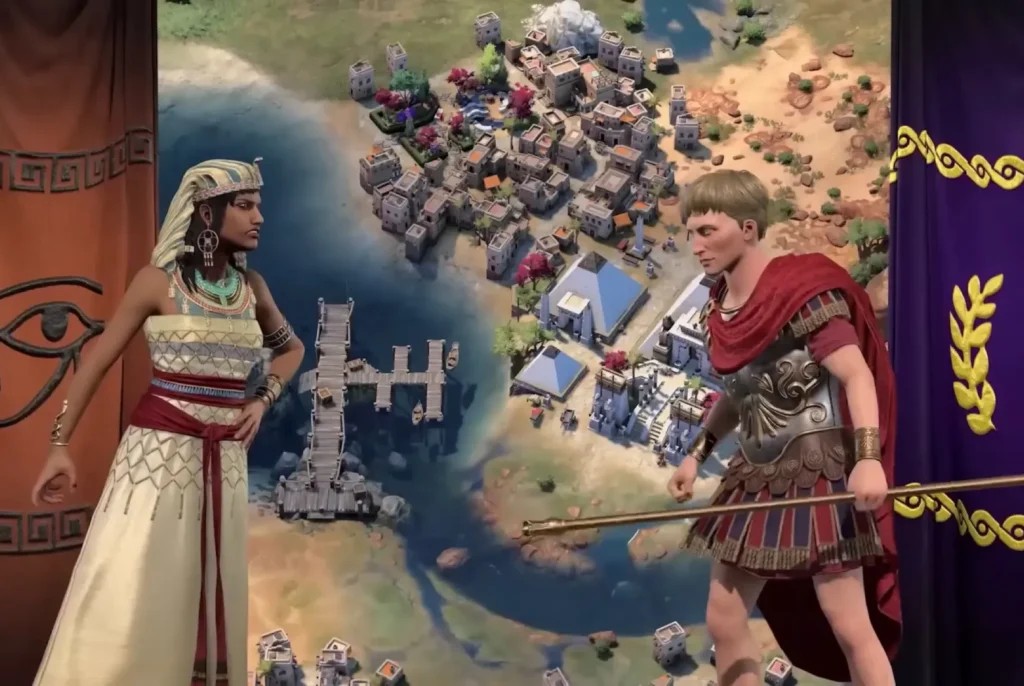Civilization 7 introduces some bold new gameplay changes that have left a significant impact on the long-running strategy series. One of the most notable shifts is the ability for players to mix and match historical leaders with civilizations they were not originally associated with in real history.
In previous Civ games, each civilization was typically linked to a specific historical leader. For example, Elizabeth I would lead England, Gandhi would lead India, and so on, creating a logical connection between the leader and their civilization. However, Civilization 7 allows for unprecedented combinations, letting players select any leader for any civilization, regardless of historical accuracy.
While many players are enjoying the creative freedom this offers, others are voicing concerns about the game straying too far from its historical roots. Fans of the series, who appreciate its traditionally strong historical ties, have expressed their disapproval of the system, calling it a blow to the franchise’s commitment to historical accuracy.
A key feature of Civilization 7 is the game’s unique campaign structure. The game progresses through three Ages: Antiquity, Exploration, and Modern. After each Age, there is a simultaneous Age Transition, where players select a new civilization from the next Age, choose which Legacies to keep, and witness the evolution of the game world. This new system represents a major shift from previous Civ titles.
In a recent interview, Civilization 7 lead designer Ed Beach explained that the team’s approach to history was not meant to undermine it but rather to offer a new perspective. “We’ve moved it around to a different place,” Beach said, comparing Civ 7‘s system to previous titles, where America, for example, was present in 4,000 BC — a historical anomaly. “Now, you start with Rome, move to the Normans, and then go to America. These are all valid pathways through history,” Beach explained.
He acknowledged that some of the new combinations, like having Confucius lead Spain or Xerxes leading the Mayans, may feel like a break from historical norms, but he believes it offers a fresh way for players to experience history. “It’s a new way for players to experience and think about history, and I think that kind of fresh take is a healthy one,” Beach added.
Despite the controversy, Civilization 7‘s changes are part of an overall effort to revitalize the 4X strategy formula. Beach emphasized that the development team wanted to address the issue of long and tedious late-game stages, which often led to players abandoning their campaigns. The changes also aim to make each version of Civ feel distinct, with a signature feature that sets it apart from previous installments.
Executive producer Dennis Shirk weighed in, noting that Firaxis didn’t want Civilization 7 to be just an “iterative release.” Instead, the team put everything into the game to create a completely new experience, rather than simply polishing Civ 6. “We put everything into it as a team to make a new experience,” Shirk said.
In the short term, Firaxis is working to address the ‘mixed’ reception of Civ 7 on platforms like Steam. Many players have raised concerns about the user interface, map variety, and missing features that they had expected.
Take-Two CEO Strauss Zelnick recently acknowledged the mixed reviews but remains optimistic. He believes that the “legacy Civ audience” will warm up to the game as they continue to play, describing the early performance as “very encouraging.”
As Civilization 7 continues to evolve, it remains to be seen how fans will ultimately respond to the mix-and-match historical approach. For now, Firaxis stands by its decisions, hoping the bold changes will lead to an engaging and more accessible experience for new and returning players alike.

